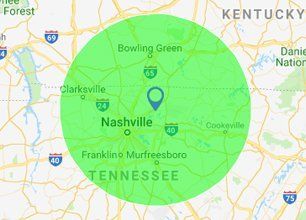
COUNTERTOP FAQS
Countertop FAQs
Call us at 615-451-6210 to learn more about our services
Helpful Answers to Common Questions
At Cabinet Express, we want you to be completely informed about your new countertop. Below, you'll find answers to some of the common questions we get about countertops. If there's anything else you need to know, don't hesitate to call us at 615-451-6210.
Care and Maintenance
You can use paper towels, a sponge, or a soft cloth for regular cleaning and for soaking up spilled liquids. Damp rags and a mild detergent or soap work very well for removing residue and spills from countertops.
You shouldn't use household cleaners like bleach, kitchen degreasers, and glass cleaners as they contain acids, alkalis, and other chemicals. These harsh cleaners can degrade the sealer leaving your granite susceptible to staining. You should also avoid ammonia, vinegar, orange, and lemon as these contain acidic properties.
Sealers typically need to be applied every year, but if your countertop is heavily used, semi-annual applications is best. Regularly applying a sealer to your granite countertop will help protect the surface from staining and bacteria. Although sealers do not eliminate the risk of staining, they do allow for more time to clean up before any damage is done.
Always use cutting boards, hot pads or trivets to protect any surface countertop.
If spills are made, clean the spill up promptly. Leaving substances such as Soda, Coffee, Fruit Juices, or Wine can stain the surface if left for a period of time. Cooking oils or grease from foods left on the countertop can also penetrate the stone and leave stains if not cleaned immediately.
How much does a granite countertop weigh?
Depending on the color, a 3 cm thick granite slab will weigh about 18 to 20 pounds per square foot.
How far can my granite extend before it needs additional support?
The Marble Institute of America recommends corbels or brackets for any overhang that exceeds 10 inches. However, the cantilevered portion must not be more than 1/3 the total width of the countertop. You should always discuss specific overhangs with your fabricator and cabinetmaker as different materials may require additional support.
What's a pit?
Pits are small, natural craters that are present in nearly all granite slabs. It is normal for pits to be present and they do not pose maintenance or durability issues.
What is a fissure?
At first glance, a fissure may appear to be a crack. However, a fissure is not a structural defect - it is the result of the great heat and pressure that first naturally formed the granite. Fissures are one of the natural characteristics of granite that gives it a one-of-a-kind appeal and they won't impair the function or durability of your countertop.
Can a granite countertop crack or chip?
Yes, it can. The good news is that most minor cracks and chips can be repaired by a professional. Granite doesn’t break very easily or very often, and if it does it is usually caused by being struck by a very heavy object. Chipped and cracked granite can be refinished or repaired with colored epoxies.
Why are some stones more expensive than others?
The price of stone is affected by a variety of factors including availability, locations of quarries in the world (due to transportation expenses), the rarity of the color, and the amount of labor required to extract the stone.
What is the difference between a crack and a fissure?
Fissures are defined as natural elongated openings in stone resulting from geological formation, environmental impact, mineralogical crystallization, and other factors. Whereas a crack has noticeable roughness, chipping, separation, movement, fracturing, and obviously broken pieces of stone.
Call Us Today to Schedule a Consultation
615-451-6210
We're one of the largest cabinetry and countertop companies in the area.
Our Facebook Feed
Our Service Area

Contact Us
Call Us Today Cabinet Express LLC
1089 Gregory Dr
Gallatin, Tennessee 37066
Tel:
615-451-6210
Gallatin, Tennessee 37066
Accepted with a processing fee
Cash or Check Preferred
Privacy Policy
| Do Not Share My Information
| Conditions of Use
| Notice and Take Down Policy
| Website Accessibility Policy
© 2025
The content on this website is owned by us and our licensors. Do not copy any content (including images) without our consent.